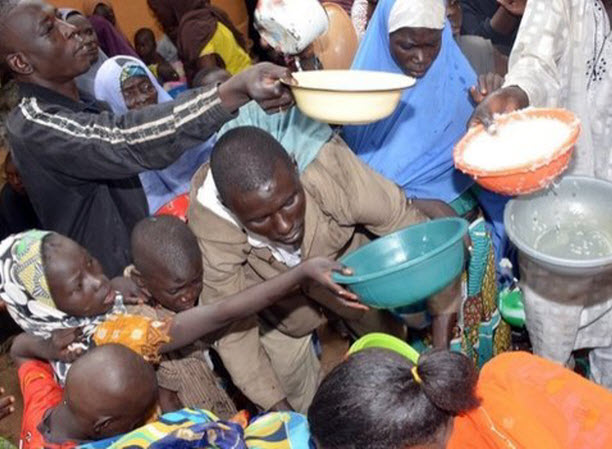There are no products in your shopping cart.
| 0 Items | £0.00 |


AS Many as 19.4m Nigerians including 416,000 internally displaced persons (IDPs) are expected to face a food crisis or worse between June and August this year according to a recent report by global humanitarian body Cadre Harmonisé.
In a recent document on Nigeria just published Cadre Harmonisé predicted that these people will be in 21 states and the Federal Capital Territory (FCT). Furthermore, the report said that in the first quarter of 2022, about 14.4m people including 385,000 IDPs in 21 states and the FCT were in a food crisis or worse and this will last until May this year.
Cadre Harmonisé is a unified tool for consensual analysis of acute food and nutrition insecurity, across 17 Sahelian and West African states including Nigeria. Its analysis was facilitated by the Federal Ministry of Agriculture and Rural Development, the Food and Agriculture Organisation of the United Nations, the World Food Programme and other relevant stakeholders.
This survey covered 21 states including Abia, Adamawa, Bauchi, Benue, Borno, Cross-River, Edo, Enugu, Gombe, Jigawa, Kaduna, Kano, Katsina, Kebbi, Lagos, Niger, Plateau, Sokoto, Taraba, Yobe, Zamfara and the FCT. According to the report, key factors that impact the food and nutrition security situation are insecurity, especially in the northeast, inflation rate as evident in soaring food prices, loss of employment and reduction in household income due to long term-effects of Covid-19.
Fred Kafeero, the country representative of the Food and Agriculture Organisation of the United Nations, said there is a growing need for a holistic approach towards national food systems transformation which is essential for the achievement of the 2030 agenda. Mr Kafeero, who was represented by Professor Salisu Mohammed said, the integration of Cadre Harmonisé outcomes in the national food systems transformation pathways will significantly contribute to the food systems transformation journey.
He called on the government to incorporate Cadre Harmonisé analysis results in national planning, including the designing and implementation of national food systems transformation action plans. Dr Ernest Umakhihe, the permanent secretary in the Federal Ministry of Agriculture and Rural Development, said the Cadre Harmonisé analysis became necessary to enable holistic analysis and understanding of the drivers and limiting factors to food and nutrition insecurity across the country.
Dr Umakhihe said: “We should also not forget the insecurity situation which has continued to threaten Nigeria’s food and nutrition security. Obviòusly, these changes have led to disruptions in food production and distribution systems, resulting in poor consumption patterns among several households especially, in areas challenged by insecurity and disrupted livelihoods.”
Stakeholders at the presentation of the food analysis report recommended that the government and humanitarian agencies should sustain the implementation of life-saving interventions of food assistance and unconditional cash transfers to the vulnerable populations in the affected areas. They also called on the government, civil society organisations and private actors to sustain and promote various empowerment programmes.